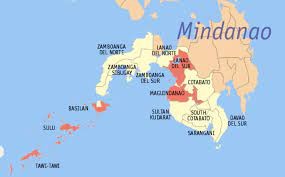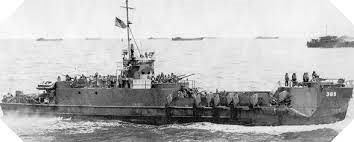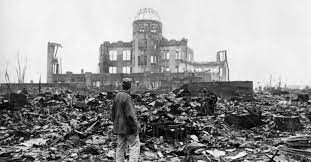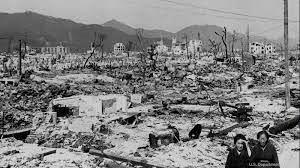|
Now I was getting prepared for combat duty. I was assigned to F Company, 2nd Battalion, to start training for an amphibious landing on Mindanao, the southernmost island of the Philippines. Fortunately, the platoon I was assigned to had been in action and the Noncoms all had combat experience. I learned a great deal from them as we went through the exercises in preparation for the landing. The platoon had to develop as a unit because each man’s life depended on another man. We went aboard an LCI (Landing Craft, Infantry) headed toward our beach landing.
As a Lieutenant, I led the platoon off the LCI and we advanced toward the airfield. Someone spotted a wire on the ground hidden by the undergrowth. Now my Mines and Booby Traps training became useful. I followed the wire carefully to the safety pin. I knelt and carefully bent the safety pin so that it could not be pulled out, cut the trip wire, and we moved on to keep the airstrip open for landing planes and to support troops who were going to move forward.
We were engaged in skirmishes every day. The Japanese were elusive. They had occupied this area for a couple of years and were well dug in. They had machine gun bunkers so camouflaged that they could not be seen. We advanced until fired on, hit the dirt and called for artillery fire, air support, or a tank.
My battalion was ordered next to go inland and set up camp. From this point, we would send patrols out to cut off the enemy and to get supplies to our troops on the jungle trails. I was now the Mess Officer as well as the Motor Officer. As Mess Officer, I tried to augment our GI food with local vegetables, fresh eggs, and chickens. I was setting up our outdoor kitchen in the Battalion area when I was approached by a Moro chef, who spoke no English but was clearly disturbed, pointing to the ground, putting his hands on the side of his head and shutting his eyes as though sleeping. Trying to see what he was trying to communicate, I looked down and noticed a ring of small stones placed there. This spot was a cemetery. A few days after I moved the location of the stove, the chief presented me with a ceremonial dagger with a bone and silver handle and wood sheath.
Back at the base, we began training for the invasion of Japan. We had our maps and orders. We were to land on the island of Honshu, the main island of Japan, to relieve the initial landing troops and proceed to the city of Tokyo. This was not to happen, even though we were ready because word came down that the Japanese had surrendered and the war was over. What a celebration took place in our camp. Anybody who had a weapon was firing into the air, machine guns, rifles, carbines. This was our fireworks. It was fortunate that no one got hurt.
The 41st Division became part of the occupation troops in Japan to deactivate their military arsenal and to govern them under the surrender documents. We arrived under cover of darkness. We had everything aboard our ship for our needs. I was dropped into a small landing craft, with a Jeep and a sergeant driver. We had a case of grapefruit and our weapons. It was past midnight, dark and pretty scary. We drove around the town getting oriented and then headed fro the deserted Japanese army camp which we would occupy. We had a few hours of sleep in the Jeep, ate a lot of grapefruit, and shortly after dawn the remainder of the regiment began coming in. It took a few days to get used to a peaceful existence.
While I was at that camp, I drove to Hiroshima to view the effect of the atomic bomb on the city. The population which had been about 150,000 had been largely wiped out by the blast. I climbed to the top of the newspaper building to take pictures of the devastation. This building was built of reinforced concrete and it was only a shell. Every building in the city was burned to the ground. It was only about 6 weeks after the bomb struck and the streets had been swept clean but no people were around.
Word came down that arrangements were in progress for wives to join their husbands in Japan. It sounded good to me so I signed up for an extra year of duty, got furlough to go home, and planned to bring Grace back to Japan with me. It took quite a while, but I met Grace in New York for a joyful reunion and to begin a 45-day holiday. I gave little thought to the fact that my orders, which were supposed to be mailed to me, had not come, but I wasn’t worried because I knew how the army operated and I knew it would be straightened out. While we were on a trip to Washington, DC, we visited Congressman Gordon Canfield. He was cordial and asked if there was anything he could do for me. Impulsively, I told him that perhaps stateside duty wouldn’t be so bad at some plush base where there was an Officers’ Club and good accommodations for married officers. He phoned the War department Liaison Officer and they arranged for me to report to Fort Dix the next day.
When I drove to Fort Dix the next day, the personnel officer pointed out that I was without orders for the furlough and asked if I would like to get out of my re-enlistment and out of the army. I thought I wouldn’t mind. When I called Grace and told her of this turn and that I might be able to get out entirely, she seemed a little disappointed because a trip to Japan appealed to her.
That’s how it worked out. I returned to Fort Dix two weeks later, was promoted to Captain, and was honorably discharged. The transition to civilian life was easy but the memory of two and a half years in the army and the experiences of the war will be with me always.
Joseph Zimel
|







